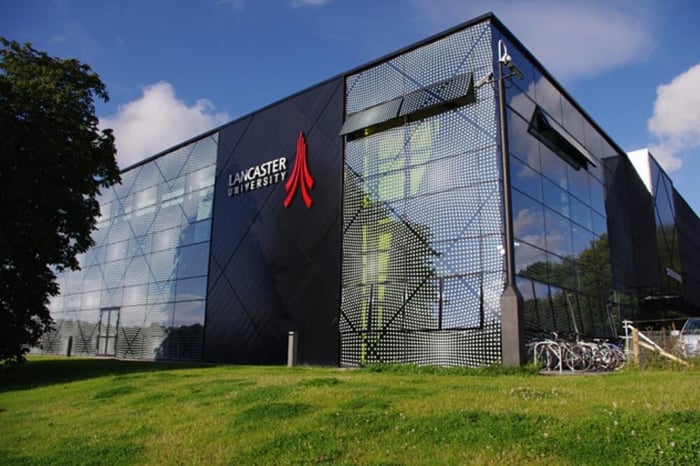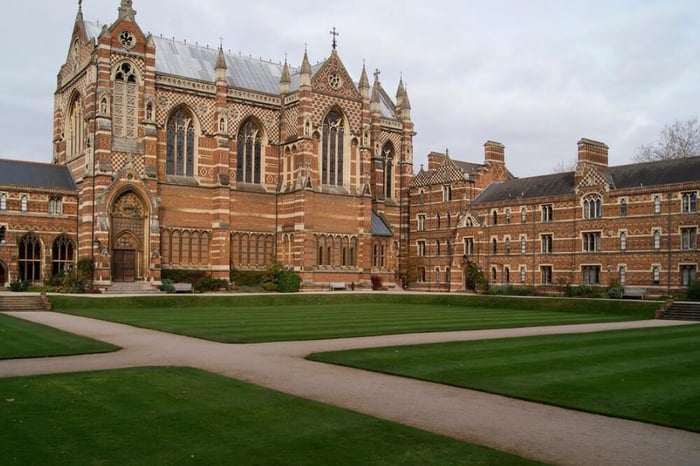
How to approach Lancaster Medical School interview questions
Lancaster University Medical School offers undergraduate and postgraduate programmes, which have a key focus on research-led teaching. With only 129 medical admission places, it is no surprise that places at Lancaster are extremely competitive; therefore it is very important that you prepare for their interview. But how do you actually prepare for it? What do you need to know?
Here to answer all your queries, this is your guide to the Lancaster Medical School interview questions!
1. ABOUT YOUR LANCASTER MEDICINE INTERVIEW
Candidates will undergo a series of multiple mini-interviews or MMI, which are held throughout January and February. The MMI will consist of 12-14 different 'stations', which will be about 5 minutes long.
- Some stations will consist of a mini interview, where you may be asked questions about your career choice, work experiences or suitability for a medical career.
- Other stations may be more interactive. You may be asked to read a short paragraph or watch a video clip and then discuss the information at the following station.
- There will be an additional 20-minute station, which will involve group work and will assess your suitability for problem-based learning.
Applicants who are selected for an interview will be sent information prior to their interview. The applicant will be assessed by trained interviewers, including members of university staff, NHS clinicians, local GPs, patients and medical students. Applicants are assessed at each station and given a score for their performance. At the end, the station scores are summed, and applicants are ranked according to their overall MMI score. Those with the highest score will be given an offer.
2. ABOUT YOUR COURSE
Therefore, it is important to research about Lancaster and why it is suited to you.

THE COURSE OVERVIEW
Lancaster medical school equips students with valuable attributes required for modern medical practice and their future clinical career. The 5-year programme combines a strong problem-based learning (PBL) structure with early patient contact.
ANATOMY
Anatomy is taught via models, DVD and audio stations. The models demonstrate tissues, organs and body systems as they appear in the human body. They are complemented with DVDs and audios that talk students through the relevant anatomy.
CLINICAL SKILLS
In the first year, medical students have a clinical skills session every week at the Royal Lancaster Infirmary. In years 2-5, students learn to perform these clinical skills on patients, supervised by medical staff.
SPECIAL STUDY MODULES
These provide the opportunity for students to study specialist topics. There are a wide range of possible topics including clinical science, public health and medical education. This allows students to broaden their experience and explore areas of particular interest.
THE STRUCTURE
- Year 1 - consists of eleven PBL modules, which introduce key concepts in biomedical science and physiology. There will also be weekly training on basic clinical skills and communication skills.
- Year 2 - students spend two days per week on hospital placements and spend one day per week on community-related activities. There are also fifteen PBL modules, which will teach common disease states and management.
- Year 3 - comprises of five rotations, each of which includes patient contact, clinical teaching, PBL and other teaching activities such as tutorials and lectures.
- Year 4 - students will spend three days a week in hospital and one day a week in general practice. They will complete two 16-week blocks, each of which will include patient contact, clinical teaching, PBL and other teaching activities, such as lectures or tutorials.
- Year 5 - students will undertake five attachments. Each attachment consists of 7 weeks of intensive clinical experience and a portfolio is used to guide and assess their learning.
3. THEMSAG TIPS TO PREPARE FOR THIS STYLE OF INTERVIEW
BE CALM
When overwhelmed with nerves, many candidates become timid and even forget to smile. Remember that in each MMI station, you will be marked according to how well you do. Therefore, even if you do badly on a particular station, you can make up for it by performing well in the other stations.
Interviewers want to see your passion for medicine and studying at Lancaster. Your interaction and engagement will help to facilitate a good rapport, so make sure you are calm and enthusiastic.

TEAMWORK
The Lancaster medical course has a strong emphasis on PBL. Therefore, you should demonstrate your teamwork skills in the group workstation. Try to allocate appropriate roles to everyone in the group, such as a team leader, a scribe, a timekeeper etc. It is important that you facilitate the discussion, instead of dominating it. Encourage everyone to voice their opinions and give others the opportunities to speak. You could even refer back to important points made by another candidate. Interacting effectively with your peers will not only highlight your communication skills but also show that you are suited to a PBL course.
PRACTICE AND PREPARE
4. INTERVIEW ADVICE FROM A CURRENT LANCASTER MEDICAL STUDENT
“The MMI stations can be very diverse; you could face anything from a role play to a timed task. Therefore, instead of jumping straight into the scenario, give yourself a few seconds to think about the situation. This will enable you to approach the station with a clear structure. It is also important to be enthusiastic! MMI’s test your ability to think on the spot and deal with pressure. They can seem daunting – however if you mess up one station, you have a fresh start at the next one, which is very helpful. So be positive and try your best!”
We hope that this post has been useful in your interview preparation. Don't hesitate to send us any questions or comments by email at [email protected]. Good luck for your interview!
------
DISCLAIMER: ALL THE INFORMATION ABOVE WAS VERIFIED VIA THE UNIVERSITY WEBSITE IN THE FIRST WEEK OF DECEMBER 2018 AND PREDOMINATELY RELATED TO THE UNDERGRADUATE COURSES. PLEASE NOTE THAT THE COURSE STRUCTURE AND INTERVIEW STYLE IS SUBJECT TO CHANGE, AND YOU ARE ADVISED TO CONFIRM BEFORE ATTENDING.



